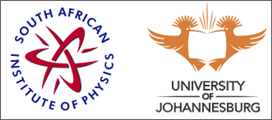Speaker
Abstract content <br> (Max 300 words)<br><a href="http://events.saip.org.za/getFile.py/access?resId=0&materialId=0&confId=34" target="_blank">Formatting &<br>Special chars</a>
Over the last few years there has been much tea-time talk and inter-university debate about the poorly developed problem-solving skills of new first-year Physics students. This supposed deficiency in problem-solving ability begs three questions: the first is ‘what is problem solving?’ A definition has been adopted from the literature. The second is: ‘is there evidence supporting the reality of the student’s deficient problem solving skills?’ The third is: ‘what could be causing the deficiency?’ An on-going study has both produced evidence for the problem-solving deficiency and a suggested possible causal mechanism. The candidate mechanism proposed here is the feedback called variously ‘backwash’, ‘washback’, and the ‘testing effect’ in the relevant body of literature. These terms refer to a feedback mechanism in which past assessment influences future teaching and learning and hence also future assessment.
First year tests and examinations in physics have for the past several years been subjected to a detailed analysis in which each question is classified according to a typology currently under development. The mark awarded to the student in each question is averaged as a measure of the group performance for that question. This allows one to deduce the type of question commonly probed and the students’ average performance for each question type. The most commonly used question type has consistently been the routine operation which has yielded consistently good results. By contrast, true problem solving has regularly accounted for a smaller fraction of each examination resulting in weaker performances. A parallel analysis of the Matric examination over the same period revealed similar patterns i.e. routine operation is examined more extensively than the true problem. This feeds back the message to students and teachers alike that the most important type of question is the routine operation for which the bulk of the marks are awarded hence candidates can pass comfortably or even well, by focusing on this approach. Limited - if any - proficiency at true problem solving is necessary, hence there is no real necessity to learn or teach it.
Level for award<br> (Hons, MSc, <br> PhD)?
No
Apply to be<br> considered for a student <br> award (Yes / No)?
No
Would you like to <br> submit a short paper <br> for the Conference <br> Proceedings (Yes / No)?
Yes

